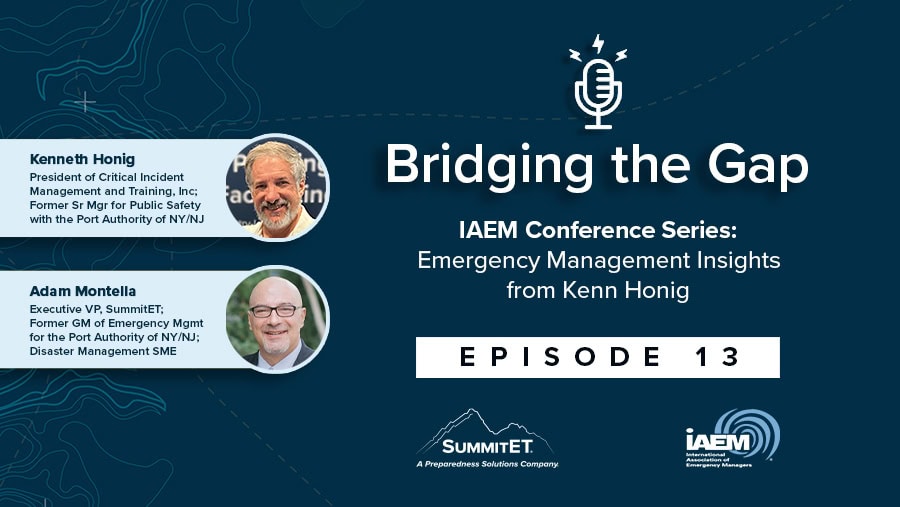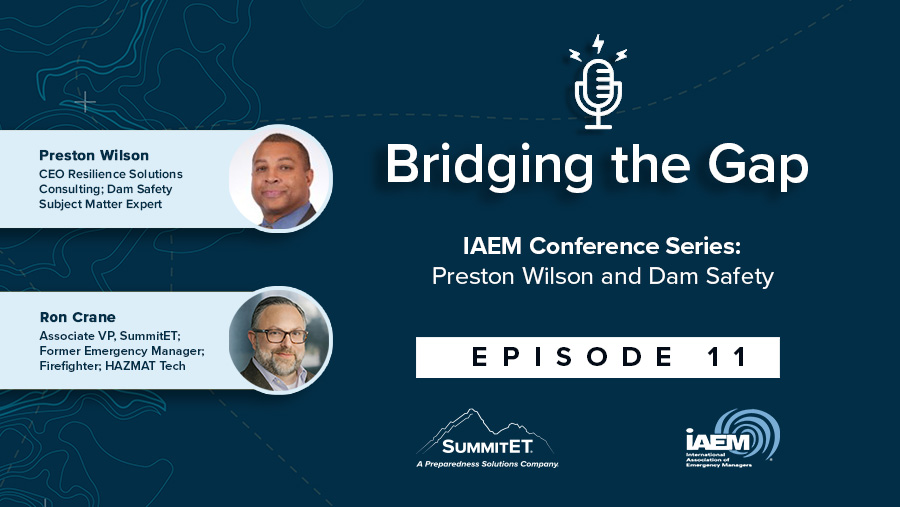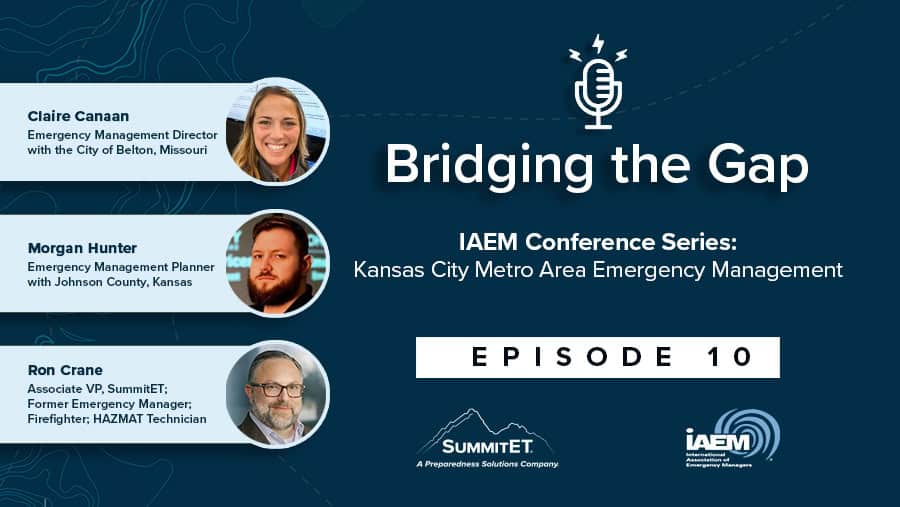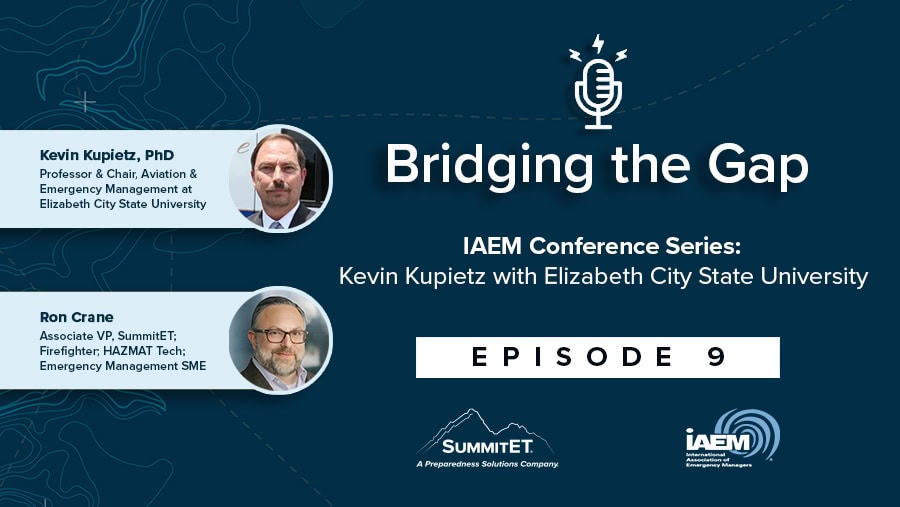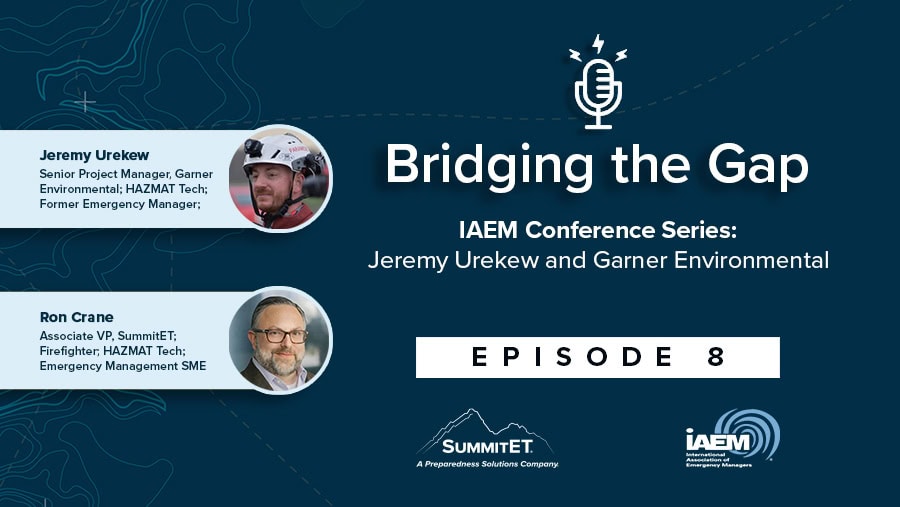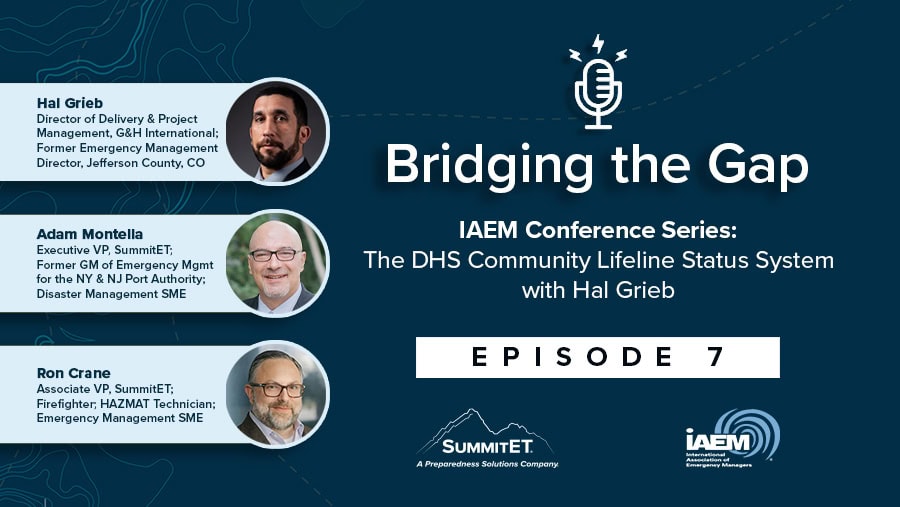Ron Crane of SummitET speaks with Shannon McCrone with the U.S. House Sergeant at Arms and Ron Benedict with DC Department of Health at the 2024 International Association of Emergency Managers (IAEM) Conference.
In this special IAEM Conference Series episode of Bridging the Gap, our host is joined by Shannon McCrone, TT&E Program Manager with the U.S. House Sergeant at Arms and Ron Benedict, Readiness, Response and Resiliency Program Manager with DC Department of Health. Shannon and Ron share their experiences, challenges, and ideas for improvement in emergency management in the Washington D.C. metro area.
Integrating Technology
A key challenge in emergency management, as noted by Shannon and Ron, is the slow pace at which public entities adopt new technology including AI and CRM systems. Utilizing resources available through the private sector could greatly enhance efficiency and streamline the processing of evaluations and after-action reports. Coming together and bridging technological gaps can be pivotal for the field with proper support from leaders and communities in both sectors.
Ron and Shannon pointed out that emergency managers may sometimes over-communicate, particularly in after-action reports. They suggest an efficient solution: condensing after-action reports to two pages and focusing on key issues to accommodate leadership’s time constraints.
Regarding planning and preparedness methods, Shannon recommends innovative approaches, such as utilizing games in exercises to engage EM partners and convey information.
Regional Collaboration
The D.C. area, like other metropolitan areas, requires effective collaboration and communication planning to disseminate disaster response information to diverse populations. With overlapping goals and limited funding, emergency management agencies across the region could benefit from coordinating and sharing training, exercise programs, and grant funding, thereby improving efficiency and success rates.
Advice for Aspiring Emergency Managers
Shannon and Ron advise aspiring emergency managers to leverage their diverse backgrounds and skillsets, network within the field, and remain receptive to undertaking a variety of tasks to gain experience.
Individuals new to and interested in the field of EM are encouraged to volunteer, seize opportunities, accept entry-level positions, and gradually gain experience. They should consider taking calculated risks with their career paths and involve themselves in as many aspects of the field as possible. Individuals from professional backgrounds outside of the field often excel in emergency management due to acquired transferrable skills including event planning, client management, business logistics, etc.
Furthermore, patience is an important quality for new emergency managers, as changes within government processes can be gradual, requiring time for implementation.
Meet the Experts Featured in This Podcast

Shannon McCrone
TT&E Program Manager with U.S. House Sergeant at Arms

Ron Benedict
Readiness, Response and Resiliency Program Manager with DC Department of Health

Ron Crane
Associate VP, SummitET; Former Emergency Manager; Firefighter & HAZMAT Technician
Visit our Terms & Conditions

